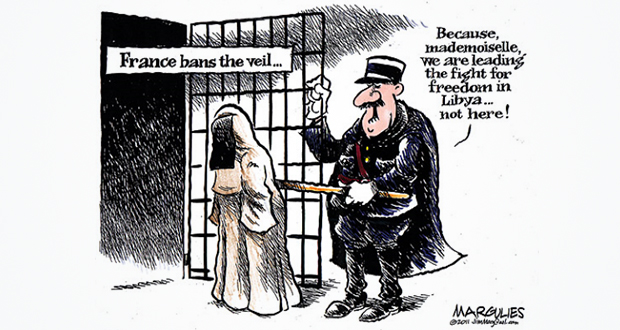Shaykh Ali Hammuda
Looking Backward to go Forward
With terms such as ‘salaf’ and ‘salafism’ having become highly politicised and sensationalised in the public domain, Ustadh Ali Hammuda separates fact from fiction in this series demystifying the status and authority of the constitutive and interpretive “Understanding of the Companions” of the Messenger of God (sallAllāhu ‘alayhi wasallam). The Authority of the Understanding of the Companions Part 4 1 | 2 | 3 | 4 | 5 Many evidences in the Sharīʿah obligate the adoption of the understanding of the earliest generations, and call on Muslims to retreat to them particularly during times of dissension. Some of these evidences are explicit and others are implicit. This is the objective of our…
Why follow the ‘old’ path?
With terms such as ‘salaf’ and ‘salafism’ having become highly politicised and sensationalised in the public domain, Ustadh Ali Hammuda separates fact from fiction in this series demystifying the status and authority of the constitutive and interpretive “Understanding of the Companions” of the Messenger of God (sallAllāhu ‘alayhi wasallam). The Authority of the Understanding of the Companions Part 3 1 | 2 | 3 | 4 | 5 Backwards, ‘outdated’, ‘non-compatible’, ‘fundamentalists’… How often do we hear these terms spurted out at the Muslim community for following its ‘old ways’ in religious matters? Has the understanding of Islam really degenerated whilst the world becomes more sophisticated and advanced? Why is such authority…
Analysing the Authority of Orthodoxy
With terms such as ‘salaf’ and ‘salafism’ having become highly politicised and sensationalised in the public domain, Ustadh Ali Hammuda separates fact from fiction in this series demystifying the status and authority of the constitutive and interpretive “Understanding of the Companions” of the Messenger of God (sallAllāhu ‘alayhi wasallam). The Authority of the Understanding of the Companions Part 2 1 | 2 | 3 | 4 | 5 In this short series, we attempt to elucidate what is meant by Islamic 'orthodox' understanding, a concept popularly criticised in the contemporary age in preference of 'modernism' and 'progressive' ideology that fits with today's prevalent dogmas. It then outlines the authority of the oldest…
Who are the ‘Salaf’?
With terms such as 'salaf' and 'salafism' having become highly politicised and sensationalised in the public domain, Shaikh Ali Hammuda separates fact from fiction in this series demystifying the status and authority of the constitutive and interpretive "Understanding of the Companions" of the Messenger of God (sallAllāhu ‘alayhi wasallam). Authority of the Understanding of the Companions Part 1 1 | 2 | 3 | 4 | 5 The Prophet (sallAllāhu ‘alayhi wasallam) once said, إِنَّ اللَّهَ نَظَرَ إِلَى أَهْلِ الأَرْضِ فَمَقَتَهُمْ عَرَبَهُمْ وَعَجَمَهُمْ إِلا بَقَايَا مِنْ أَهْلِ الْكِتَابِ “Allāh looked at the people of the earth and was angry with them all, Arabs and non-Arabs, except for a remainder of the…
We drowned first. Then he did.
Read & share today's latest article - Exclusive; Following Syrian Refugees in Hungary For the past few months, heart-wrenching images have been reaching us in succession. Images of corpses which the waves of the sea had carried to the shores of land after their attempts to escape the barrel bombs of Bashar and the savagery of his men, failed in the middle of the ocean. We would not have known this had the shores of Libya, Turkey, Greece and other countries not complained to us. The last of these images was one that shocked the world. A child who had not reached the…
When Allah Exposes Double-Standards
After 13 years of persecution, the Prophet (sall Allāhu ʿalayhi wa sallam) was finally given permission to fight. He (sall Allāhu ʿalayhi wa sallam) sent out military and exploratory campaigns and expeditions against the pagans of Quraish. The scholars of history are generally agreed that a “Ghazwa” is a campaign which was led by the Prophet (sall Allāhu ʿalayhi wa sallam) whilst a “Sarriya” is an expedition which he would be absent from. During the year in which permission to fight back was given, the Prophet (sall Allāhu ʿalayhi wa sallam) had led four expeditions and organised four others. It…
The optimism of the early Muslims
In Pursuit of Optimism - Part 3 Click here for part 1 | Click here for part 2 | Click here for part 3 Optimism in the Companions and Pious Predecessors Knowing that he would not live with us forever, the Prophet (sall Allāhu ʿalayhi wa sallam) was very eager to inculcate the value of optimism within his companions and indeed he would succeed in doing so wonderfully. The second Khalīfah, ʿUmar b. Al Khattāb received a letter from the Muslims of Kūfa who wanted to consult ʿUmar regarding an expedition against the Persians. When ʿUmar received the letter, he asked the messenger of his…
Prophet Muhammad: the Greatest Teacher of Optimism (sall Allāhu ʿalayhi wa sallam)
In Pursuit of Optimism Part 2: Prophet Muhammad (sall Allāhu ʿalayhi wa sallam): the Greatest Teacher of Optimism Click here for part 1 | Click here for part 2 | Click here for part 3 In the direst of times, the Prophet (sall Allāhu ʿalayhi wa sallam) would persistently raise morale, boost confidence and steer attention to the bright side of any situation or condition that the believers would find themselves in. Sahl b. al Hanthalia reports: أَنَّهُمْ سَارُوا مَعَ رَسُولِ اللَّهِ صَلَّى اللَّهُ عَلَيْهِ وَسَلَّمَ يَوْمَ حُنَيْنٍ فَأَطْنَبُوا السَّيْرَ حَتَّى كَانَتْ عَشِيَّةً فَحَضَرْتُ الصَّلَاةَ عِنْدَ رَسُولِ اللَّهِ صَلَّى اللَّهُ عَلَيْهِ وَسَلَّمَ فَجَاءَ رَجُلٌ فَارِسٌ…
In Pursuit of Optimism
In Pursuit of Optimism - Part 1 Click here for part 1 | Click here for part 2 | Click here for part 3 When one studies the traits which the prophets and messengers possessed, he finds that they were given characteristics which enabled them to lead, inspire others and guide. They were given characteristics which enabled them to plant the seeds of Islām in the hearts of nations, making Muslims the exporters of good, as opposed to consumers, and enabling them and their followers to lead rather than to be led. There were traits Allāh endowed to the personality of every prophet and messenger,…
The Inked Remedy – Video Series
This unique series is based on a fictional character, Adam, who has lost his father but is applicable to anyone who has experienced any form of sorrow, whether it may be theft, illness, betrayal, or rejection. Join us as we traverse the journey that our minds go through when dealing with grief, and the remedies for them.













